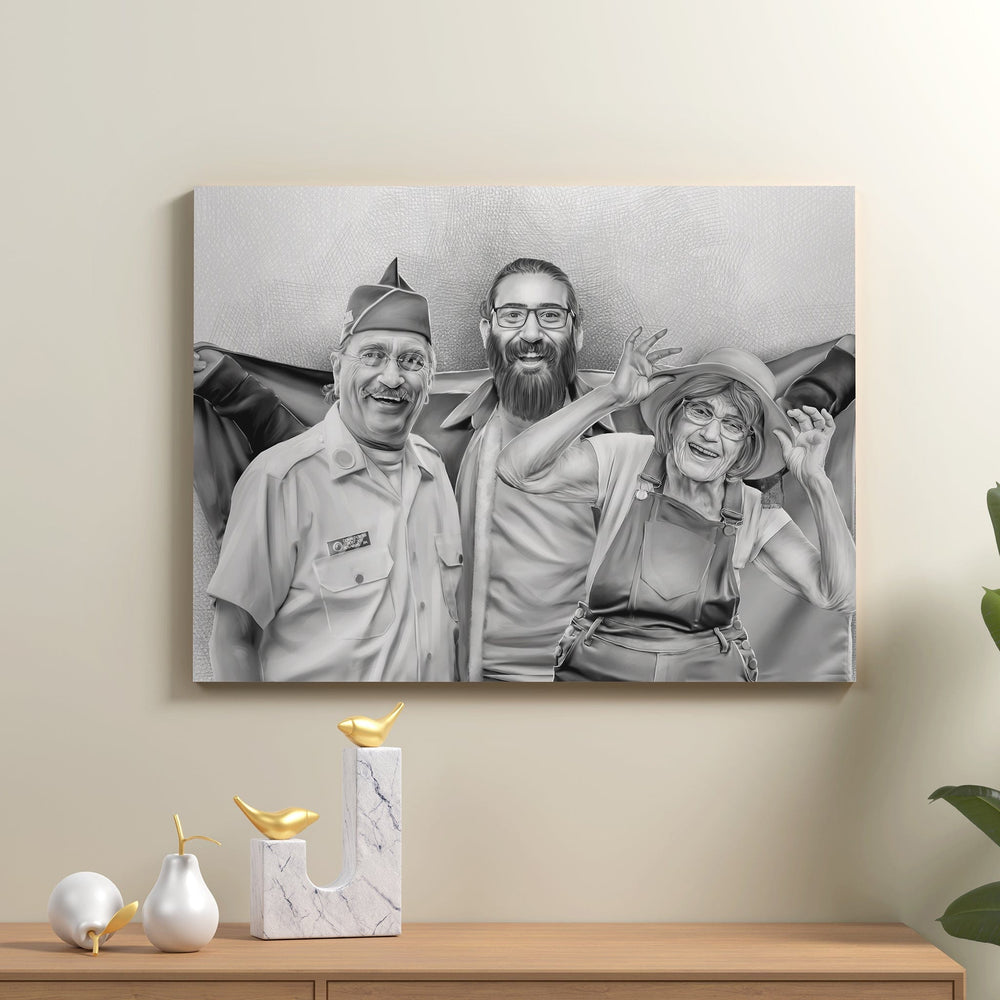A Practical Guide To Getting Over Grief

Facing the emotional whirlwind that comes with dealing with grief is an unwelcome but inescapable part of life. Whether you're grieving the loss of a loved one, confronting a life-changing event, or struggling with other forms of loss, the journey through grief can often feel like an uncharted wilderness of despair and isolation. But you don't have to navigate this difficult time alone. In our comprehensive blog post, we will provide actionable steps, expert advice, and compassionate insight to help you move forward. While everyone's grief experience is unique, this guide aims to equip you with the tools you need to begin the healing process.

Photo by Karolina Grabowska from Pexels
What is Grief?
Grief, in essence, is the deep sorrow or emotional pain we feel in response to loss. It's a complex emotional state that can encompass a range of intense emotions, from profound sadness and loneliness to anger, guilt, and even disbelief. Though most commonly linked to the death of a loved one, grief can also be triggered by various painful experiences such as the end of a relationship, loss of job, or moving away from a cherished place.
What makes grief particularly intricate is that it doesn't follow a predictable pattern; its intensity, duration, and manifestations can vary significantly from one individual to another. Recognizing and understanding this messy emotion is the first step towards healing and finding a path forward in the aftermath of loss.
Stages of Grief
While everyone's grief journey is unique and might not strictly adhere to these stages, many find solace and understanding in this structured breakdown. Let's delve into each of these stages to gain a clearer perspective.
Denial
Denial is the initial protective shield that buffers us against the immediate shock of the loss. During this stage, the world can become meaningless and overwhelming. Life as you know it has changed, and internally, you're not ready to accept that reality. Thoughts like "This can't be happening" or "There must be some mistake" often dominate, making it hard to comprehend the weight of the situation.
How to go through this stage:
Understand that denial is a natural defense mechanism and a normal part of the grieving process. Allow yourself to feel the disbelief without judgment.
Surround yourself with understanding friends or family members who can provide a listening ear or safe space. They don't need to offer solutions; just having them nearby can be reassuring. You may also start journaling as it can be therapeutic. By writing down your feelings, you might be able to process the shock and reality at your own pace.
Additionally, engage in grounding exercises or practices that can help keep you anchored in the present moment. This could include deep breathing exercises, meditation, or simple activities like walking or gardening.
Anger
As the numbness of denial wears off, anger usually steps in to fill the void, presenting a whirlpool of chaotic emotions and turbulent thoughts. This stage can be characterized by frustration, irritation, and sometimes even rage. The anger can be directed at oneself, others, or the universe at large, and it often comes with a severe sense of unfairness. Questions such as “Why me?” or “How could this happen?” become frequent companions, manifesting an external expression of the internal pain.
How to go through this stage:
The first step is to recognize and accept your anger without judgment. It's a valid and natural response to loss. You may also find safe and constructive outlets to express your anger, be it through art, physical activity, writing, or talking it out with a trustworthy person.
If anger starts consuming your daily life, it might be beneficial to seek grief therapy or counseling to work through the intensity of this emotion in a structured manner. You can also engage in mindfulness practice to help in calming the storm inside. Meditation can offer a space to sit with your emotions without getting carried away by them. Most importantly, remember that it is a phase and it will pass. Give yourself the time to feel and to heal.
Bargaining
The bargaining stage often emerges as a desperate and sometimes frenzied attempt to regain control in the face of uncontrollable circumstances. Here, individuals grapple with a whirlwind of "if only" and "what if" statements, searching for any means to reverse or mitigate their loss. It's not uncommon for people in this stage to make silent pacts with a higher power, believing that by changing a behavior or making certain promises, their pain will be alleviated or the loss reversed.
How to go through this stage:
Talk with loved ones, therapists, or support groups about these feelings. Vocalizing them can be a way to process and move beyond the unrealistic hopes or deals you might be silently making. Writing down your feelings and thoughts can also be therapeutic. It allows you to externalize and confront the pacts or promises you might be contemplating.
Additionally, engaging in practices like meditation can help bring you back to the present moment, grounding you in the reality of now rather than the "what ifs" of the past. If you find yourself making deals with a higher power or are conflicted spiritually, consider speaking with a spiritual or religious leader or doing spiritual activities. They might provide insights and comfort tailored to your beliefs.
Despair
Despair is a profound sense of hopelessness, where the weight of loss becomes almost unbearable. It's a stage marked by deep sadness, a feeling of emptiness, and a sense of being overwhelmed by the magnitude of the loss. The future might seem bleak, and there may be moments where one questions the purpose or value of moving forward.
How to go through this stage:
It's crucial to permit yourself to feel the depth of your pain without judgment. Suppressing or avoiding it can only prolong the healing process. If despair continues or becomes too much to bear, don't hesitate to seek professional counseling or therapy. They can provide coping strategies tailored to your needs.
Bringing structure back into your life, even if it's minimal, can provide a sense of normalcy. Simple routines, such as morning walks or reading before bed, can help anchor your days. Activities like meditation, deep breathing exercises, or even yoga can also help regulate emotions and provide moments of tranquility amidst the storm of despair. Additionally, you should focus on small, positive moments in your day, and celebrate them. It could be as simple as enjoying a meal, having a short conversation, or watching a sunset.
Acceptance
Acceptance does not mean happiness or a return to the uninhibited joy of life before loss. Instead, it represents a new norm, where the reality of the loss is acknowledged and integrated into one's life. It's the point where the heart starts to find a semblance of peace, and one begins to look forward, even if hesitantly, to the possibilities of life ahead. While the pain may not disappear entirely, the sharpness and frequency of its pangs diminish.
How to enter this stage:
Give yourself time. Acceptance cannot be rushed. Everyone's grief journey is unique, so allow yourself the time you need to process your feelings at your own pace.
Try to focus on cherishing the memories and positive experiences rather than dwelling solely on the loss itself. This might mean celebrating anniversaries, reminiscing with friends and family, or even engaging in activities that your loved one enjoyed.
However, remember that just because you're moving towards acceptance doesn't mean you have to do it alone. Continue to lean on support groups, friends, and family. They can provide encouragement and a sense of grounding.
Other Tips
As you begin to adjust to life after your loss, consider creating new routines or traditions that honor the memory of your loved one while allowing you to move forward. Here are some options you may want to consider:
Commission a Custom Oil Painting

Get your own custom oil painting here
One of the most profound and heartfelt ways to honor and remember a deceased loved one is through the timeless art of painting. Commissioning a custom oil painting offers a unique opportunity to immortalize cherished memories, capturing those irreplaceable moments of joy, love, and shared experiences.
Create a Family Portrait

Order your watercolor family portrait here
Amidst the waves of grief, finding a way to celebrate shared memories can be a comforting anchor. One unique and heartwarming approach is to commission a watercolor family portrait. This medium, with its soft hues and fluid lines, evokes a gentle and nostalgic touch, perfect for paying tribute to the love that binds a family.
Moreover, consider the idea of a childhood photo recreation within this portrait. Taking those cherished old photographs and having them artistically reborn in watercolor can serve as a powerful testament to the enduring bonds of family, irrespective of time and change. Such a portrait not only honors the past but also ensures that the love and memories continue to be celebrated in the present and future.
Display a Pet Memorial Portrait

Get your pet memorial painting here
Losing a beloved pet can be as heart-wrenching as any other loss in our lives. These furry, feathered, or scaled companions hold a special place in our hearts, often standing by us during life's ups and downs. To commemorate the undying bond and memories shared with our animal companions, consider immortalizing them through a pet memorial painting. This tangible tribute captures the essence, quirks, and unique personality of your cherished pet, creating a lasting keepsake.
When to seek professional help
While navigating the tumultuous waters of loss, it's essential to recognize that everyone's journey is individual, with the natural grief process varying greatly from one person to the next. However, there are instances where the impact of grief becomes overwhelmingly intense, prolonging far beyond the anticipated healing timeline or severely affecting daily functioning.
If you find yourself unable to cope, struggling with persistent feelings of despair, or facing difficulties in resuming daily activities even after a considerable amount of time, it may be beneficial to consider mental health counseling. Specialized grief counselors are trained to understand the intricacies of the grieving process and can provide tailored support, helping you navigate and process your emotions in a constructive, healing manner.
FAQs
What are some self-care tips for grieving individuals?
Engaging in therapeutic activities, such as journaling or art, can provide an outlet for emotions and create moments of reflection. Maintaining physical health—through regular exercise, a balanced diet, and adequate sleep—can also bolster emotional strength. Lastly, carving out time for relaxation techniques like meditation, deep breathing exercises, or even simple walks in nature can serve as rejuvenating breaks from the weight of grief.
How can I find support groups for grieving individuals?
Begin by checking with local community centers or religious institutions; many actively host or recommend bereavement groups. Many hospitals and therapy clinics also provide grief counseling and organize professional-led support group sessions. For more personalized guidance, seek recommendations from therapists, counselors, or friends who have navigated similar grief journeys.
What are the different types of grief therapy?
There are several approaches designed to cater to an individual's unique needs and emotional responses:
- Cognitive-behavioral therapy (CBT)
- Interpersonal therapy (IPT)
- Art therapy
- Narrative therapy
- Group therapy
Discover Healing Through Art: Connect with Memorialize Art Today
Navigating through the intricate emotions of grief can reshape our life experience and perspective. As you tread this path, it's essential to seek avenues that can enhance your quality of life and offer solace. Art has the unique power to convey the profound emotions of grief, providing both comfort and catharsis. If you're seeking a tangible way to honor your memories and channel the myriad emotions of grief, consider exploring Memorialize Art. Let art be the bridge between pain and healing, transforming grief into a lasting tribute.










